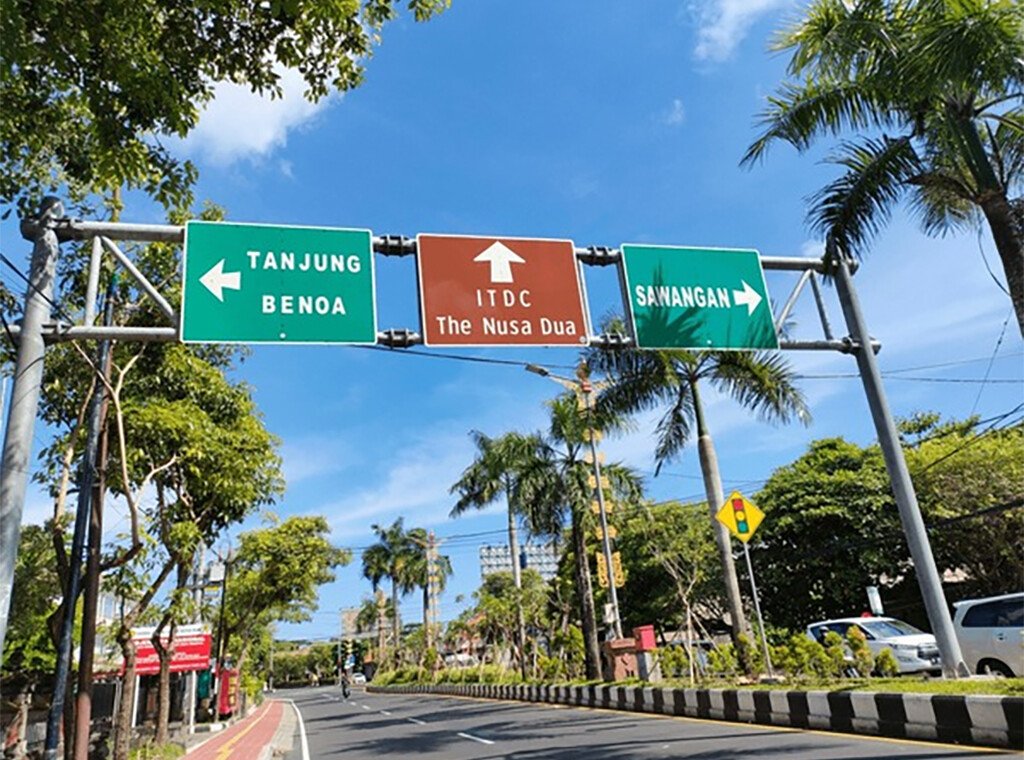Bali offers travelers a tapestry of experiences—from tranquil rice terraces and sacred temples to bustling markets and pristine beaches. While exploring this enchanting island, navigating its roads can be both exhilarating and challenging. Whether you’re renting a scooter to zip through Ubud’s narrow lanes or driving a car along the scenic coastal routes, understanding Bali’s unique driving environment is crucial for a safe and enjoyable journey.
🚦 1. Understand Local Driving Customs
Driving in Bali is a blend of organized chaos and unspoken rules. Unlike the rigid traffic systems in many Western countries, Bali’s roads operate on a more fluid and flexible basis.
🛵 Motorbikes Are King
Motorbikes dominate Bali’s streets. Expect to see them weaving through traffic, often carrying multiple passengers or goods. As a driver, always check your mirrors and blind spots, especially when turning or changing lanes.
📣 Honking Is a Communication Tool
In Bali, honking isn’t necessarily a sign of aggression. Drivers often use their horns to signal their presence, especially when approaching blind corners or overtaking. A quick beep can alert others to your intentions and prevent potential accidents.
🚶♂️ Pedestrians and Livestock Have the Right of Way
While vehicles are expected to yield to pedestrians at crosswalks, in practice, pedestrians often step onto the road without warning. Additionally, it’s not uncommon to encounter livestock—such as cows, chickens, and dogs—roaming freely. Always drive with heightened awareness and be prepared to stop suddenly.
🗺️ 2. Utilize Navigation Apps Wisely
Bali’s road network can be intricate, with numerous alleys (known as “gangs”) and winding paths. To navigate effectively:
- Google Maps: Reliable for main roads and urban areas.
- Waze: Offers real-time traffic updates and alerts.
- Maps.me: Useful for offline navigation in remote areas.
Always have a backup plan. In areas with poor signal reception, downloaded offline maps can be lifesavers.
⏱️ 3. Plan Your Travel Times
Traffic congestion is a common issue in Bali, particularly during peak hours. To make the most of your time:
- Avoid Peak Hours: Traffic is heaviest between 7–10 AM and 4–7 PM.
- Early Starts: Begin your journeys early in the morning to enjoy smoother traffic and cooler temperatures.
- Midday Breaks: Consider scheduling longer drives during midday when traffic tends to be lighter.
By timing your travels strategically, you can minimize time spent in traffic and maximize your exploration.
🛑 4. Drive Defensively and Stay Alert
Bali’s roads can be unpredictable. To ensure your safety:
- Speed Limits: Generally, 40–50 km/h in towns and 60–80 km/h on highways.
- Avoid Distractions: Refrain from using your phone while driving.
- Seatbelts: Always wear your seatbelt, and ensure all passengers do the same.
- Night Driving: Be cautious when driving at night, especially in rural areas with limited street lighting.
Remember, driving in Bali requires heightened awareness and adaptability. Stay calm, be patient, and always prioritize safety.
🧭 5. Be Prepared for Road Hazards
Bali’s roads present unique challenges. To navigate safely:
- Road Conditions: Expect potholes, uneven surfaces, and occasional gravel roads.
- Weather Impact: Rain can make roads slippery, especially in rural areas.
- Animals on Roads: Livestock and pets may wander onto roads unexpectedly.
- Ceremonial Processions: Traditional ceremonies can temporarily block roads.
Always drive cautiously, especially in unfamiliar or rural areas. Being prepared for these hazards can prevent accidents and ensure a smoother journey.
🚘 6. Consider Alternative Transportation Options
If driving isn’t your preference:
- Private Drivers: Hiring a local driver can alleviate stress and provide insights into Bali’s culture.
- Ride-Hailing Apps: Services like Gojek and Grab are widely available and offer convenient transportation options.
- Public Transportation: Buses and bemos (shared minivans) are economical choices, though they may have limited routes and schedules.
Choosing the right mode of transportation depends on your comfort level, itinerary, and budget.
📌 Final Thoughts
Navigating Bali’s roads offers an opportunity to immerse yourself in the island’s vibrant culture and stunning landscapes. By understanding local driving customs, planning your routes, staying alert, and being prepared for road hazards, you can ensure a safe and enjoyable journey. Whether you’re exploring bustling markets, serene temples, or scenic coastal drives, Bali’s roads lead to unforgettable experiences.









Join The Discussion